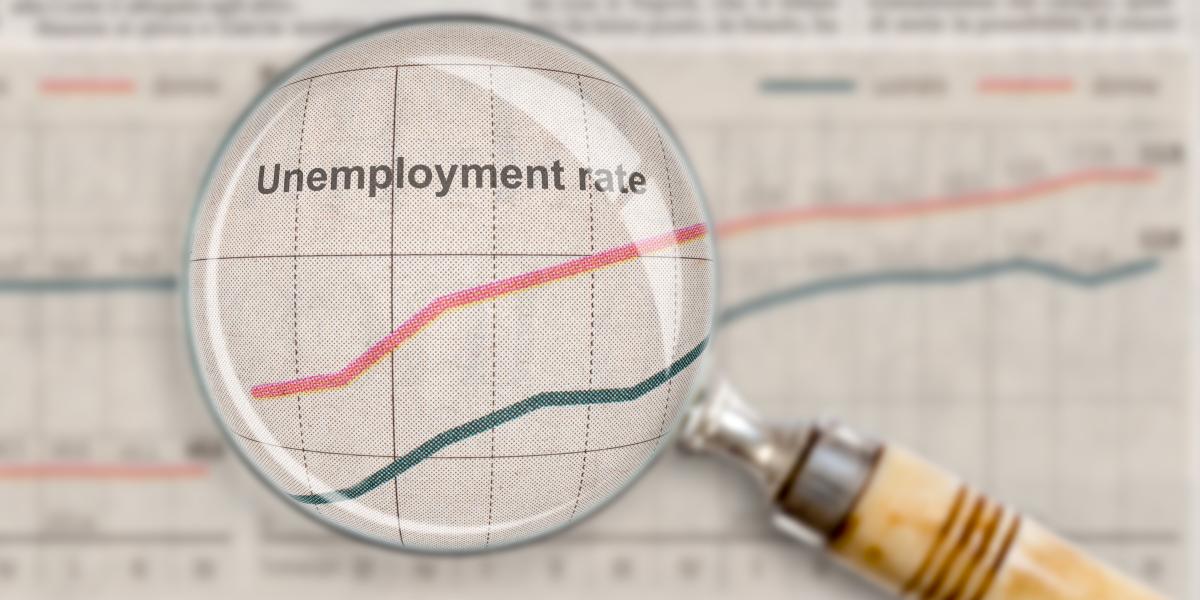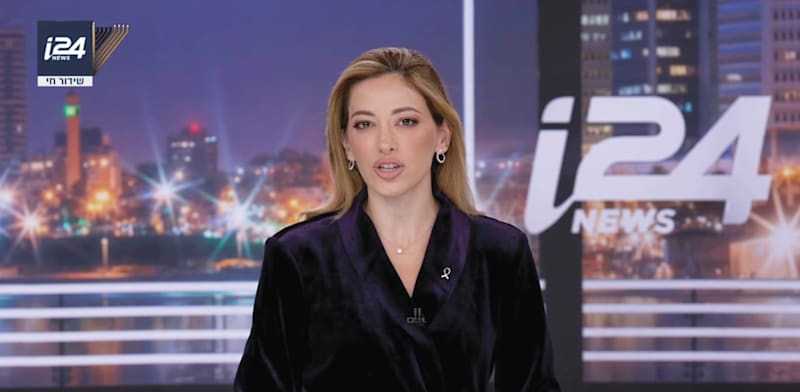Think you’re too young to start buying rentals and building wealth? You’re not! If you want to know how to invest in real estate while in college, or in your 20s, Daniel Kaplan has the blueprint. In three years, he went from having just $10,000 to his name to owning 99 rental units (and counting)!
As a college sophomore, Daniel bought a rental property for less than $50,000 (yes, really!). Then, he used the Section 8 investing strategy to mitigate his risk, earn consistent rent checks, and lock in over $600 in monthly cash flow. This first investment was a home run, but as you’re about to find out, it was just the first of many deals for Daniel. Today, he’s closing in on 100 total units!
Recently graduated, Daniel now uses wholesale real estate to help fund his investments and has a large real estate portfolio that spans three completely different markets—all because he took action with his limited money and resources. In this episode, you’ll learn how to do the same, no matter your age, experience, or season of life!
Dave:Can you invest in real estate while in college? It is possible and it can give you a headstart on the compounding returns that make investing in rental properties so powerful in the long run. But you need to start your investing journey on the right foot and overcome some very common challenges. If you’re anything like me during college, you don’t have a lot of cash sitting around and most people aren’t really eager to lend you their money. So today we’re talking about the right way to invest during your college years, so you graduate with a headstart on achieving financial freedom instead of an anchor weighing you down.Hey everyone, I’m Dave Meyer, head of Real Estate Investing at BiggerPockets, and on the show we teach you how to achieve financial freedom through real estate. Today we’re talking about investing in real estate during college, and my guest on the show is investor Daniel Kaplan from Chicago. Daniel graduated from the University of Wisconsin just a couple of months ago, but he has already built a sizable and very profitable portfolio of properties while he was living in a frat house. Daniel is going to share with us his own journey from real estate education to buying his first deal to scaling up within just a couple of years, and he’s going to explain how he overcame those common hurdles. Any college student who wants to invest is going to face those, of course, including accumulating, starting capital, but also things like finding financing and building a team who’s going to take a college kid with big and bitches seriously. Daniel has a really cool, impressive story and is going to share great advice for those of you in a similar situation during school or really for anyone really in their investing journey. Let’s bring ’em on. Daniel, welcome to the BiggerPockets podcast. Thanks for being here.
Daniel:Oh yeah, very excited to be here. I appreciate it, Dave.
Dave:So tell us a little bit about where were you and when in your life did you first get into real estate investing?
Daniel:Yeah, so a little bit in high school I always had that entrepreneur spirit. I started off in this sneaker and street wear flipping business just so I could make a quick buck here and there During high school, made maybe 10 20 grand, maybe a little bit upwards of 30. Actually,
Dave:I don’t think I had seen that amount of money until I was like 24, so that sounds like a lot.
Daniel:As a high schooler, I was stoked and for me, as I was getting closer to college, I wanted to figure out what was that next jump I was going to make. And somehow one of my buddies, his name is Tanner, he said, Daniel, check out this video. He knew I had that entrepreneurial bug, and so he, and he sent me a video of this individual talking about section eight real estate on, Hey, it’s this amazing program. You can buy such cheap properties. It’s backed by the government guaranteed rent. And he was like, yeah, people are getting 30, 40% year over year returns. And I was like, what’s the catch? I got to dive into this. And that was what initially sparked that bug of, wow, I need to dive into this rabbit hole of real estate and try and figure this thing out.
Dave:Wow, very cool. And so were you a freshman in college then?
Daniel:Yeah, so at this point I was a freshman in college. I think we were kind of towards second semester, got a little bit more comfortable, got into my groove there, and this is when we decided, Hey, let’s dive deep into this stuff. So we partnered up, we were like, Hey, this is the exact route we want to go, but we were like, what’s next? We don’t know anything about real estate. None of our parents were in real estate. We didn’t have the experience. We were a little bit lost, and that was where we came across BiggerPockets and trying to consume as much content as humanly possible because we needed that baseline understanding before we went ahead and somehow miraculously we ended up on Birmingham, Alabama.
Dave:Okay,
Daniel:I’m from Chicago, he’s from Boston. We’re at school in Madison, but yet we decided on Birmingham, Alabama as our choice too, really dive into find our property. Why? Because we only had 20 grand. We’re like, Hey, we can’t go and buy a million dollar property here. So our first sniff test was, we need to find some cheap properties. I know you are big at numbers oriented individual and buy the data for this. It was honestly just, you know what? Let’s go and decide on Birmingham. And it worked out one of the cheapest property tax states in the us. We were seeing some decent growth over there, massive section eight demand. So I mean, we got lucky there with choosing that market, but okay, what was next? We’ve never been, there’ve never even been to the state of Alabama, nor has he. So we knew we had to build a team because I’ve never been in the market. I know nothing about Alabama. So we luckily kind of just started cold calling a bunch of real estate agents. We were like, that’s probably the best first step to make
Dave:Smart.
Daniel:And after maybe 10 of those conversations, we found one individual who was willing to dive deep into this with us and this individual, her name was Amanda and she was the one that really helped us out throughout this whole journey because like I said, we didn’t have any lenders lined up. We didn’t have any GCs, any handymen. We didn’t know anything about the market that we were looking into. So we used Amanda as that key piece to then build the team around us and really piggyback off of her experience there.
Dave:Wow, that’s great. I mean, I love that story, just sort of hustling your way into it, which congratulations seem. That’s kind of like your personality and spirit, but still it takes a lot of work, especially when you start getting rejected like that, it can feel a little bit discouraging, but you stuck with it.
Speaker 3:Oh yeah.
Dave:Okay. So 20 grand was enough to buy something that she recommended. What did the buy box ultimately look like?
Daniel:So the buy box was, we wanted a three bedroom property. We wanted our rehab to be under 10 grand. We wanted to aim for a more turnkey property, but in that market it was hard to really find true turnkey properties.And we also didn’t want to have too big of a property. We knew we wanted to take that section eight route, so we didn’t want a property that was over 1500 square feet just because the more square footage, the more maintenance we were going to have, which would’ve diminished our returns. A long-term time horizon in 2022, market was still pretty hot. How hard was it to find something like that? How it would work is Amanda, at the end of every week, she would send us an Excel file in column A, it had the address column B, the bedrooms, column C, the bathrooms, and then a link to the deal as well as the estimate of what we thought it was worth slash the list price. And then she would give us a little back of napkin rehab budget just off first glance.
Dave:That’s awesome.
Daniel:And from there we would kind of underwrite it ourselves, and this was where a big skill that we gained throughout this process was the ability to underwrite these deals. We were getting maybe 20, 30 properties a week and we would go line by line analyzing these and you guys had this calculator on the BiggerPockets website and we were just plugging every single deal into there, understanding the numbers, and maybe took us 80, 90 deals until we found the one that worked for us.
Dave:Wow, 80 or 90. Okay.
Daniel:Yes. I mean it took us maybe three months to go and get this first deal.
Dave:A couple of things I want to call out here. First and foremost, I love the fact that you looked at 90 to a hundred deals. That is just the way to do this. And I know people get discouraged if you look at eight, 10 deals and you don’t find them. This is just the job of an investor. Your job is to go out and find the good assets, and sometimes that takes 90 or a hundred and you probably got faster at this too, right? The first one’s really hard, second one’s hard, but by the 50th one, you’re probably pretty quick at it. And I guess with section eight, the rents, so that’s one of the harder parts of underwriting the deal that is actually done for you,
Daniel:Right? Yep, exactly. That was what was nice about the section eight is we could see on the housing authority website that hey, we will get 1300 bucks for a three bed. We’ve learned now that actually deviates a little bit given the area that you’re in.And like you said, those first 10 deals that we were underwriting, maybe each deal took us an hour to dive into, try and figure out all this information, and once we got to deal 70 and deal 80, boom in two minutes, we could look at a deal and know exactly what kind of return we would get. It was just a big volume game. We’re big believers in volume, negates luck, and we knew that we just needed enough times at bat until we found that deal, and that was kind of when we decided to go and pull the trigger there.
Dave:That’s totally right. I say this to people all the time, I buy deals mostly on the market. People say you can’t find deals on the market. It’s like you’re just not looking at enough of them. If you just keep looking, there are things that are inefficiently priced all the time, it’s your job to spot that and go out and find it. The other thing I love about what doing this many reps is that it also really helps you sort of benchmark your expectations. I often advise people to do this, that if you’re between deals, you’re saving up money, just keep running deals because you’ll know what to expect. You learn that the average cash on cash return is 8% or whatever, and then when you do that 91st analysis and it’s 12%, you’re like, wow, okay, now I’ve actually found the good deal. And that really helps staving off analysis paralysis.You don’t get overwhelmed because you’re like, oh, I know that most deals are in this range and I found one that is significantly better. Those are the ones I’m going to go out and buy. Exactly. So I want to hear about what it was like for you actually closing on this deal site unseen, but we’ve got to take a quick break. We’ll be right back. Alright, let’s talk about something. We’ve all dealt with funding that takes forever. You got the property lined up, the numbers make sense, everything is ready to go, but the funding, that’s often where things start falling apart. Either it’s too slow, it’s too rigid, or just way more complicated than it needs to be. But here’s the thing, it doesn’t have to be this way. I want to tell you about express capital financing. They understand how investors operate and they’ve built a system that works for us. Quick approvals, flexible terms, and none of the endless paperwork that slows things down. Whether you’re working on a flip, buying a rental, or tackling a big commercial project, they give you the speed and flexibility you need to make it happen. Great deals don’t wait and neither should you get your funding locked in by going to express capital financing.com or click the link in the description, trust me on this one. It’ll save you a ton of headaches. Visit express capital financing.com/biggerpockets for more information.Welcome back to the BiggerPockets podcast. I’m here with investor Daniel Kaplan talking about how he and a partner bought their first deal as college sophomores across the country. So you found this deal, Daniel, did you go visit it in person at all?
Daniel:We have still to this date, never even seen the property, and I think now I bought almost 10 properties in Birmingham and still have never even been to the state of Alabama.
Dave:Really?
Daniel:Okay. We were shooting blind here.
Dave:And what gave you that confidence?
Daniel:We just knew we had to take action and we were confident in our team, in the systems and people we put in place that we could execute on this deal, and it really came down to finding that key player that we trusted with everything to make that decision that we could blindly trust them. I mean, we FaceTimed her as they walked the property and as the GCs were on site, we were getting that feedback loop, but it really just came down to the people and the team that we built in that market that allowed us to feel confident buying that deal without ever even being in the state ourselves.
Dave:How did you build that rapport with Amanda? Because yeah, I am sure you get a vibe right when you talk to someone, but was there anything particular you did because that’s a lot of trust you’re putting in someone.
Daniel:Oh yeah. The biggest thing with us with building rapport is we really wanted someone who believed in our story and believed in our vision. At the end of the day, we’re two 19-year-old college kids with a 20 grand net worth who are trying to go all in on real estate, and most people are not going to take you seriously. Most people are going to call you guys dumb, Hey, maybe wait another five years, Daniel, maybe wait till you get a job and recoup and get some more capital. But for us, we really wanted to sell our story and sell our dream, and I think Amanda really bought into that and really resonated with it, and I think she saw some potential in us, kind of saw us as a penny stock that she wanted to invest in. I don’t see it as a disadvantage of you being young and in college, use that to your advantage. I’ve got no mortgage, I don’t have a car payment, I don’t have a family, I don’t have kids. I’m going all in on this. And we really just wanted to find that person who was willing to go and work with us and buy into our story.
Dave:Very cool. Well, that is bold and brave. I don’t know if I would advise everyone to do that. I honestly think for the right person you can do it. I have bought properties site unseen in new markets, but I’ve been to the market. I go and just look around. But I respect the faith you had in yourself and the team that you put in place.
Daniel:That was a big piece of it too, is what we realized is if we can buy good enough deals where we have a big margin of error, where we can still be profitable, that was our key is, hey, even if we messed up and let’s say, hey, we’re vacant for an extra one or two months, or we go over in our rehab budget, we knew that because of how good of a deal that we were buying, we had that room for error. We could make mistakes and still stay profitable and not go underwater. How long did it take? The work took us about a month and then it took us another two months to actually go and lease the property, which was longer than we anticipated because we thought that, hey, in the snap of our fingers we can get this thing rented. But the housing authorities, they thought differently. They were a little bit slower to get everything in place. So we closed on it in, I think it was November of 22 and then come January of 23 we were leased and cash flowing.
Dave:Awesome. I mean overall pretty good. Three months to stabilize essentially. And how much rent could you get for this when you filled it out?
Daniel:So we ended up renting this for $1,300 and your
Dave:Mortgage was what?
Daniel:It was like a couple hundred bucks a month. So too crazy.
Dave:So what does your cash look like?
Daniel:So it was about 600 bucks a month for those kind of first six months. After fully leasing it, we got a 28% cash on cash return, which blew all expectations out of the water. And we built in 2030 grand in equity from buying it at such a good price and at such a good basis where hey, we had that equity gap as well where in the future if we want to refi or want to go and capture some of that equity, we can.
Dave:Yeah, that’s great. Wow. One of the reasons I wanted to call us out because yeah, the 28% cash and cash return is great, but as you alluded to, for you to really understand cash and cash return, you got to put in those repairs CapEx. So over the years, have you figured out on average what those repair and CapEx that you need to set aside for? Because this is a common error a lot of investors make is they take their rent, they subtract their taxes, their insurance, their mortgage payment, and then that’s cashflow. But as you now know there are other expenses. So how have you changed your underwriting, I guess, to account for those expenses?
Daniel:So what we do is we’ll look at the asset, we’ll see, hey, this property is going to rent for and just for easy math, let’s say it was renting for $2,000, how we do our underwriting in these Class C, a little bit rougher of areas. We assume that of that top line rent that we’re collecting, 40 to 45% of that is going to go to our operating expenses. So our property managements, our repairs, our utilities, our taxes, our insurance. So we underwrite pretty conservatively now with every asset that we look at. It’s that back of napkin rent times 0.6 minus your mortgage payment and boom, that’s your bottom line cashflow.
Dave:That’s a good way to do it. Makes a lot of sense. So I want to ask you, you said it took a little bit while to get it rented. What was it like working with the housing authorities and going with the section eight approach?
Daniel:So it’s not all sunshine and rainbows unfortunately as if anyone in college is looking into buying real estate, they see these section eight guys who say how easy it is, oh, you’re going to get this guaranteed rent. There’s a lot of headaches that go into
Speaker 3:It.
Daniel:And at the time, if it was still a three month lease up period today I would be stoked for some of other assets that we bought. It’s now pushing six months to get these things leased. It’s maybe only a couple people in the office with very lackluster systems. So we could have our property fully renovated on December 1st, submit everything to them and even have a tenant lined up and it still just might take two months to do all the paperwork to get all the inspections in place just to go and start cash flowing. So now what we underwrite with our deals is, hey, when we buy these, we’re going to be vacant for 3, 4, 5, 6 months. It is a massive headache. And then also a big fallacy I see people kind of follow is the look at the housing authority website. They can see the rent that they get. You almost will never get that rent
Dave:Really,
Daniel:Because what they’re doing is they’re saying, Hey, that is the most we’ll rent for, but they’re also going to be looking at conventional comps with regular cash tenants and they’re going to say, Hey, I know you submitted for 1300, we’re only going to approve you for 1200,
Speaker 3:Which
Daniel:That a hundred dollars difference could mean a deal or no deal. So I always tell people when you’re underwriting a section eight deal, assume it’s going to take you four months to even start cash flowing and also that rent you see in the housing authorities, just do a 10% reduction because you likely won’t get that figure. And if you do, amazing, but if not, you got to be happy with that figure.
Dave:I like this approach a lot because people look at some of these market conditions like, oh, it’s going to take six months, I can’t do section eight. Yeah, you, you just need to underwrite it. It all just comes down to putting these assumptions and accurate assumptions into the way that you’re analyzing deals. Because if you’re doing what Daniel does and say, Hey, I know I’m going to put six months of vacancy in the front of this, if you say I’m going to get 90% of the maximum listed rent and the deal still pencils still do the deal. And if it doesn’t, don’t, don’t blur the lines. Don’t get overly optimistic rose tinted glasses, especially in this type of market, you can’t assume everything is going to go right when you’re underwriting a deal, something always goes wrong. You have to just assume for that and then when it goes wrong, you’re not even mad about it. You were just waiting for it to happen instead of hoping that everything goes perfectly and getting frustrated what it doesn’t. That’s just not how the industry works.
Daniel:Exactly.
Dave:Well it sounds like you got an awesome first deal, Daniel. I want to hear about how you’ve grown your portfolio from there. We got to take one more quick break though. We’ll be right back. Welcome back to the BiggerPockets podcast here with Daniel Kaplan talking about his portfolio in Birmingham, Alabama. Or I guess I should ask you, you bought your first one in Birmingham, Daniel. Did you keep buying there After that?
Daniel:Kept buying over there, but then also expanded into other markets. And again, this has all been throughout my college career, those four years, I now scaled up to about 99 units now. Oh wow. And that is across Wisconsin, Texas, and Alabama in Birmingham. I now have, I think it’s nine units, but what we realized is that three month lease period started to shift to six
Speaker 3:Months, and
Daniel:When it took six months to lease up these assets, we knew it was tough. We were really struggling with being vacant for that long and the housing authorities only got worse and worse from 2022 to today, we thought that, hey, we might want to diversify and get into some other markets. We were in school in Madison, Wisconsin, so we decided to, hey, let’s maybe stay in state this time. And we started buying in Milwaukee, Wisconsin.
Dave:Oh,
Daniel:Cool. And then bought about six doors over there as well.
Dave:You bought a really good first deal, but it sounds like that used up pretty much all of your capital after that first one. How did you finance the second one?
Daniel:Yeah, so after that first deal I was like, this is amazing. I love real estate, but what’s next? I got no cash. Well, what can I do here? I don’t want to sit here twiddling my thumbs all day. So that was where we decided, okay, how can we stay in the real estate industry but get some active income so we can use that capital to fund deals? And that’s where we dove into the wholesaling rabbit hole because we knew the way you find success in real estate is you need to find really good deals. So we wanted to keep mastering that process with finding those deals and hey, we can make a quick buck in doing so. That’s kind of how we came across with wholesaling. And over the course of six months, I mean it was super tough. It took me maybe six months in wholesaling to get my first check. So it was six months, eight hours every single day to make a 12 grand check. So I mean it was maybe three bucks an hour if you waited out. Yeah, it’s not good when you think about it. No, it was not great. But we learned some skills, which was amazing. So it took six months to make that 12 grand and then another two months to go and find that next deal.
Dave:What did the second deal you land look like?
Daniel:We actually got this next deal from cold calling a homeowner, so it was a duplex that she lived in herself and she had to go and move states now due to a job relocation. So she was living in one unit, the other unit was rented, and this was in Milwaukee. She had to go move to Georgia. So we cold called her and she said, Hey, you know what? I’m in this situation, I need to relocate. And yeah, we ended up buying that next property directly from the seller without an agent this time. So that one was a super interesting one as well. And we went from that first single family property to now leveling up to actually getting a duplex. So it was exciting to slowly improve the kind of assets that we were buying. And since it’s only an hour drive from Madison, did you go check this one out? At least before he bought it? We drove around the area just to get a feel for it because Milwaukee was one of those places where it’s a super block by block area. You could have one block be super nice, the other block could be a war zone. So we wanted to get an idea of that market and we drove around with some connections that we met who were like, oh, you don’t want to be down this street, or, oh, this corner over here is not a place you want to be at night.So we understood the market a little bit as it was in our backyard this time.
Dave:Cool. And so what was it like building another team? It sounds like obviously put a lot of effort into finding Amanda in Alabama who connected you to the right contractors and property managers. Was it a similar experience in Milwaukee?
Daniel:Exactly. The beauty of this time though is I actually had a track record that I could utilize. So now I could go the same approach of calling all these agents and finding those key players and all that fun stuff. But now we had a track record, which was helpful. So when we were talking to people, they would take us more seriously that, hey, we actually own some real estate, but the beauty of this is it was just copy and paste, but in a different market. Of course there’s some other nuances that go along with that, but we did the same exact process that we had. We found that key player, that key player that introduced us to everybody else that we needed on our team.
Dave:Well, it sounds like those first two deals while you were in college were awesome. I think this is a really unique cool story that a lot of our audience will be interested in, whether you’re in college or just really getting started relatively early into your professional career, it’s very appealing because the longer you’re in the business, the more time you have to compound. It can be very beneficial to start early, but it can be really challenging. So Daniel, curious if you just have any advice for our audience, if you’re in college or on the younger side, how to get into the game, things that you recommend to those people.
Daniel:Initially when we got started, I had that fear of cold calling people, cold calling my friends, my family, people in this market because I wasn’t experienced. I thought they wouldn’t take me seriously. I didn’t know what I was doing, but when you find the right individuals, they’re going to want to see you win. So a big thing that I recommend to all individuals is find somebody that can help you along this journey. For us, we found Amanda and we found some people on our network that were able to coach us along this journey. So though you don’t have experience use, that’s your advantage. People want to buy into people who are young, hungry and ambitious and want to figure out this industry, try and have as many conversations as possible. You want to obsess overall things real estate and try to talk to as many people as you can because those individuals are the ones that are going to help you find these deals and operate these deals. Because we had people who we’d be underwriting a deal, we would think it was good, we’d send it to Amanda or someone else in our network and they would say, Daniel, you’re an idiot. This deal is never going to work out because of X, Y, and Z. So piggyback off of other people’s experience if you don’t have any.
Dave:I love that. That’s really a really good way to put it and to have realistic expectations about what you can contribute and what people can contribute back to you given that. And there’s nothing right or wrong about it. I just think that you need to bring something to the table for people to take you seriously. That’s super important. The other thing you said earlier that I think is really, really important is that you needed to find an active income to fuel your business. And I know there’s tons of people on social media who say, oh, you just get into real estate, you just passive income, bing, bang, boom, you’re rich. It’s like that’s not really how it works. So you need to find a way to make money. And I know not everyone wants to go out and find a job, but that’s kind of what you have to do. Whether it’s working for yourself like Daniel did and went into a wholesaling business, which you would probably call it a job, I would assume.
Daniel:Yeah, pretty much.
Dave:Yeah. You’re working right? You’re putting a lot of effort into it.
Daniel:Exactly.
Dave:That’s what I always tell people. It’s like you could choose to go into real estate full-time like Daniel’s done in wholesale. If you can make money that way, awesome, go do it. But it’s active income. If you find a job that pays you well and you want to use that to fuel your investing, I don’t care, whatever makes you money, but you’re going to have to find some active income to be able to pursue a portfolio even if you’re buying relatively inexpensive properties.
Daniel:Exactly. And yeah, the vehicle that I chose to try and make some active income was wholesaling, but for other individuals it could be getting a job or hey, maybe working at someone’s property management company or working under a real estate agent. If you want to stay in the industry, you can, but in order to really grow in this business is you do need some form of active income to keep the lights on here. Because for us, if we tried to live off that cashflow from that first rental property that we had, it would’ve not gone well because with that one, unfortunately down the line, we came across some bigger issues that required that capital. So whether it’s getting a side hustle or getting a part-time job, especially at college where, hey, you only have classes for two or three hours a day. Yes, you can still go out every weekend and have fun, but find a way to get that active income. I mean, I was at school in Madison, of course, I was still having fun going to the bars out there, but find a way to make some capital too, as you are in this business and just live below your means, save that money and just keep trying to compound because the earlier you start, the bigger benefits down the line.
Dave:Do you think there are other advantages that college students have? Because I know there are disadvantages. It’s hard to start early, but like you said, having more time can be an advantage over people who have kids or full-time jobs. Are there other advantages you think they have in starting early
Daniel:In college? I mean, of course it’s dependent based on the major and the school that you’re at, but your classes may be only two or three, maybe four hours a day. This is the one point in your life where you have no other obligations, you don’t have a family, you don’t have a kids, you don’t have a mortgage. There’s no better time than right now because you do have that freedom as a college kid, and it’s okay if you make mistakes. You also have that safety net of having a degree if for some reason it doesn’t work.
Speaker 3:Yeah, that’s true.
Daniel:Just try and find time, build a schedule, be like, Hey, I’m going to allocate these three hours every single day to consume as much content as possible, or to go and work that side hustle so I can go and stack some capital. But there’s no better time than now when you don’t have obligations, when you have that free time and you’re young and you’ve got energy and utilize that to something productive.
Dave:That’s what I was just going to say. Don’t wait, man. If you could go out and have fun, wake up, put three hours into real estate, do your courses, do that while you can, because at 38, I definitely don’t have that level of energy anymore. But at 23, that’s what I was doing. So yeah, it’s definitely a way of just taking the advantages that you got at any given point. There are advantages of being 38 too, but look at the things that you have around you and how to leverage those to build your business.
Daniel:Yep, exactly.
Dave:Daniel, this has been a lot of fun learning about your journey. Where does your portfolio stand today?
Daniel:Like I said, I currently have 99 units, and that is across Wisconsin, Texas, Alabama. And then with that, luckily given that kind of moat I’ve built, I also really am full-time into the wholesaling side of things. So kind of post-grad now that I graduated in May, and I’m kind of full-time into this now, it’s focusing on scaling that rental portfolio, whether that’s buying more properties, buying bigger assets, and then just kind of keeps staying in the real estate industry and scaling up all those endeavors.
Dave:I’m not big on door count, but man, you got to get to a hundred if you’re at 99, you just got to get that next one.
Daniel:Exactly. I’m right there. We’re one away.
Dave:Well, thanks so much, Daniel. I really appreciate you being here. Super cool story. Thank you for sharing it with us. Think it’s a really inspirational, cool lesson for anyone who’s getting started while they’re in college or relatively young just starting out in their career, showing that this blueprint is absolutely possible, and we’d love to stay in touch with you to hear how your story and your portfolio progresses over the next few years.
Daniel:Yeah, hopefully in a year when I come back over here, we’ll be closer to that two, 300 unit level and maybe getting into some better areas as well with nicer properties. So super excited. I don’t know what the future’s going to look like, but just continue scaling within real estate.
Dave:Awesome. Well, congratulations Daniel, and thanks again. And thank you all so much for listening to this episode of the BiggerPockets Podcast. We’ll see you next time.
Help us reach new listeners on iTunes by leaving us a rating and review! It takes just 30 seconds and instructions can be found here. Thanks! We really appreciate it!
Interested in learning more about today’s sponsors or becoming a BiggerPockets partner yourself? Email [email protected].

























